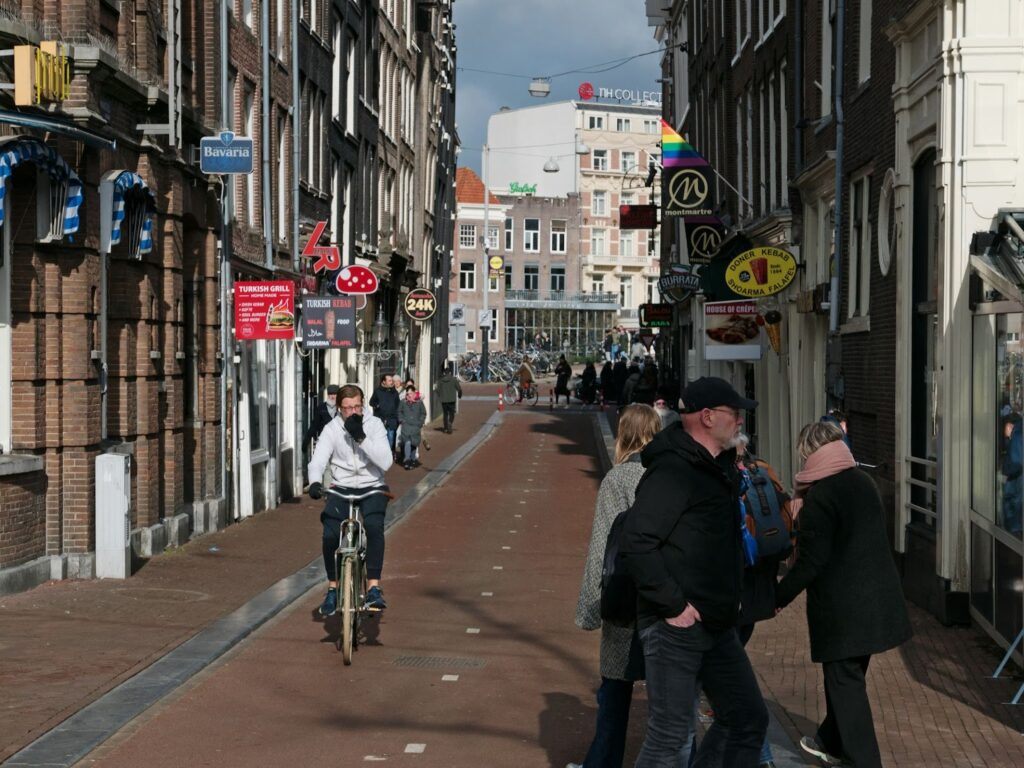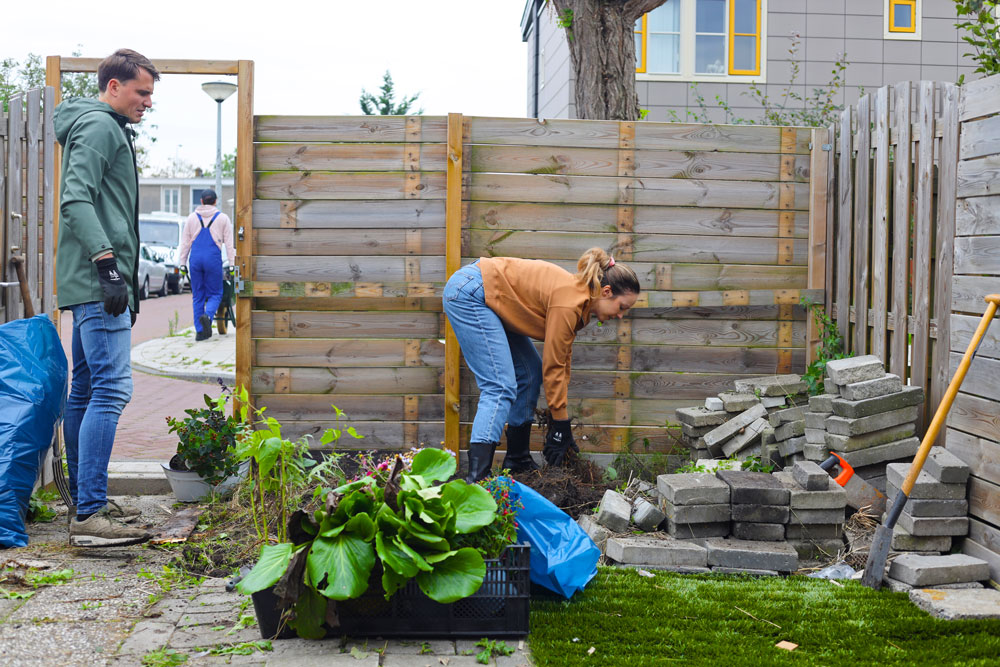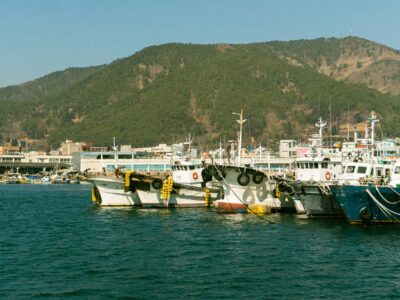There’s a cool national competition taking place in the Netherlands right now. It’s making the streets of bustling urban areas green while removing paving slabs. The fourth annual “Tegelwippen” is moving in earnest. By the end of October, the winner will be announced.
The competition, translated as “tile whipping,” was created by creative agency Frank Lee. The first edition of the competition took place in 2020. Since then, it has removed more than 11 million tiles. The space becomes urban forests, flowerbeds, vegetable gardens, grass, and other green spaces.
“The competition is a gimmick, of course,” Eva Braaksma, Frank Lee’s creative director, told Positive.News. “People really like to compete! But the power of the thing is its simplicity. You just pick up your shovel and get started.”
The competition has gotten so popular that it’s becoming international. In 2023, the contest moved to Belgium, specifically the Flanders region.
Photo Courtesy NK Tegelwippen
Tegelwippen was started by Remco Moen Marcar. He told The Guardian the idea came to him while everyone was inside during the COVID-19 pandemic. He thought it would be fun to host a competition between clients from Rotterdam and Amsterdam, the two largest cities in the Netherlands. During the pandemic, he said the lack of soccer — or football — made him appreciate outdoor space more.
“One always wants to be the best when it comes to soccer, so let’s use this as an incentive for people in those cities to clear the tiles out of their garden[s],” he said.
The increased green space has a lot of environmental benefits. It sequesters carbon emissions and air pollution, making it healthier for residents. They are also great for “sponge gardens,” green spaces designed to collect rainwater and return it to nature. The Netherlands is predicted to get more rain due to climate change.
Slabs will be used to reinforce old housing foundations, which are also linked to climate change. Some are building “facade gardens,” a buffer zone of vegetation between streets and homes.
Locals work together to remove these stone slabs, fill them with soil, and plant whatever they please.

Photo Courtesy Fons Heijnsbroek
Better drainage also leads to drier bike lanes. The Netherlands is one of the most bike-friendly countries in the world, thanks to its flat topography and emphasis on public transportation. With more rain comes more flooding, making it difficult for some people in rural areas to get around. The Dutch National Cycle Network connects the entire country together, with 21,748 miles (35,000 kilometers) of cycling lanes.
Some residents considered “Tegelwhippen” to be a national sport, almost like soccer. Each month, people submit photos of their transformed spaces. Judges then pick a Whipper of the Month. It’s successfully increased the number of gardens throughout Holland and continued to combat climate change with civil infrastructure.





